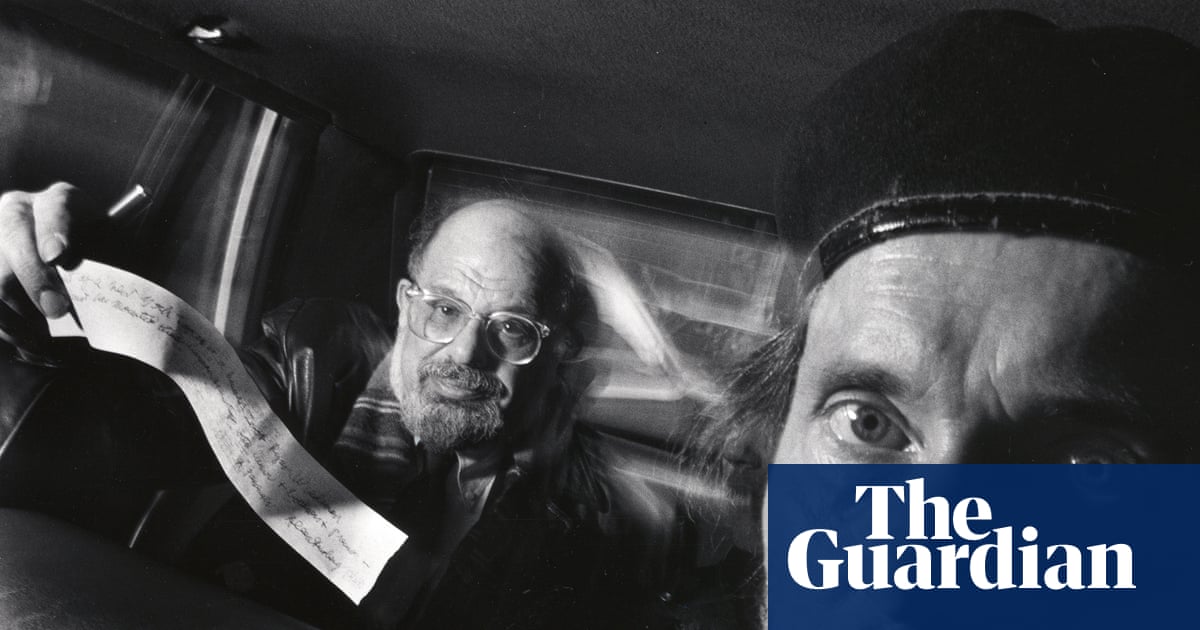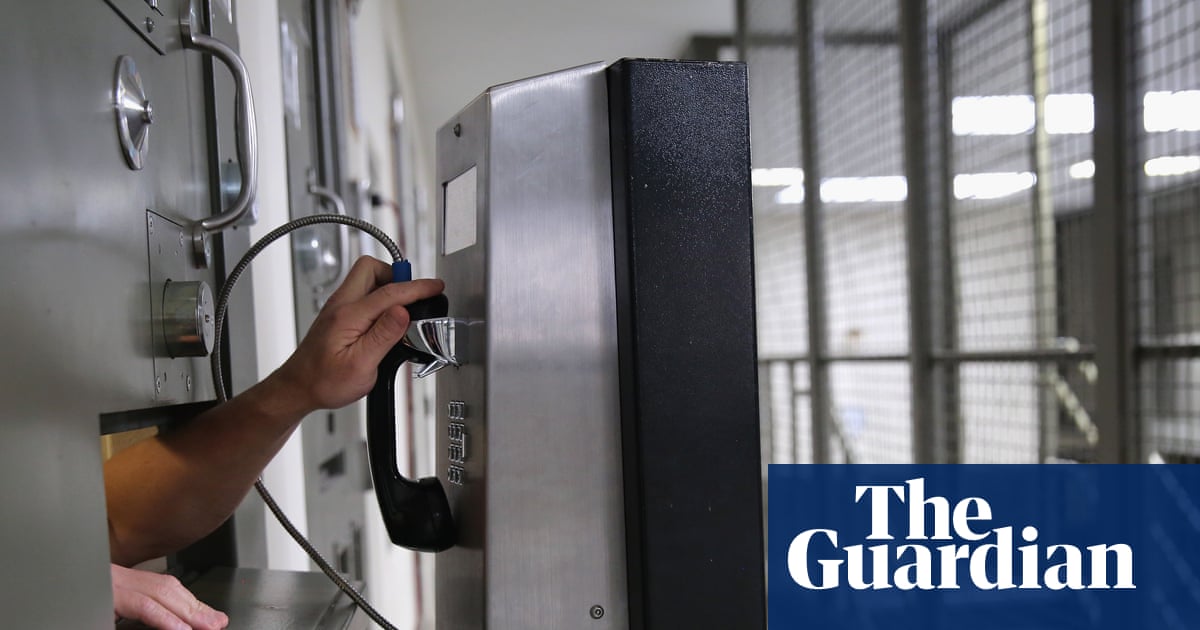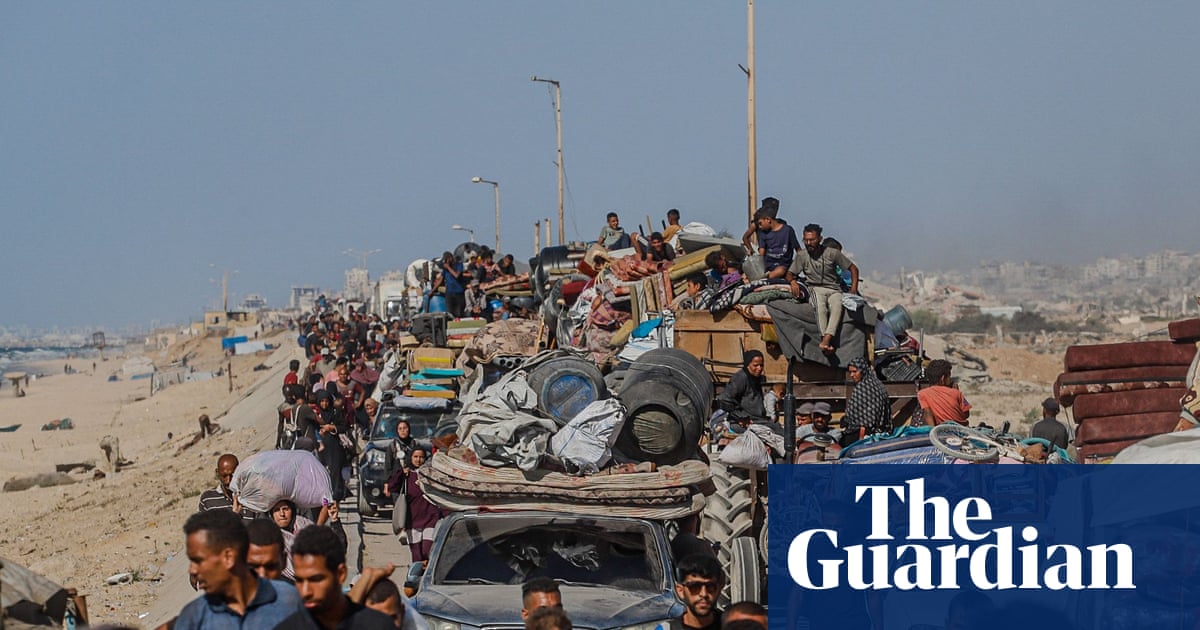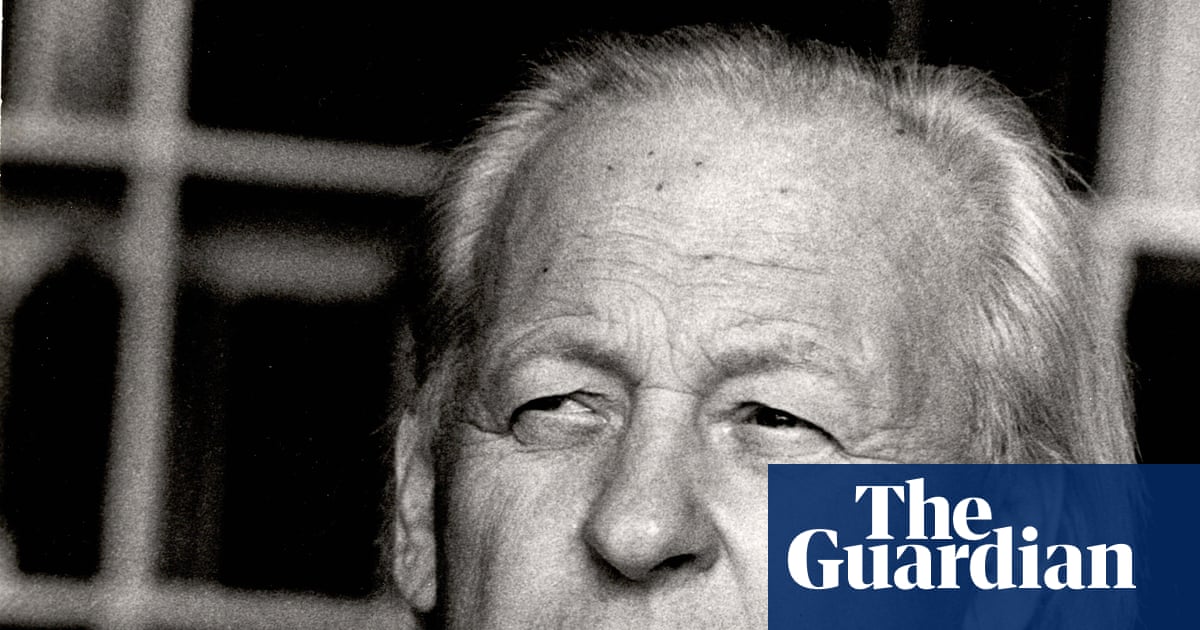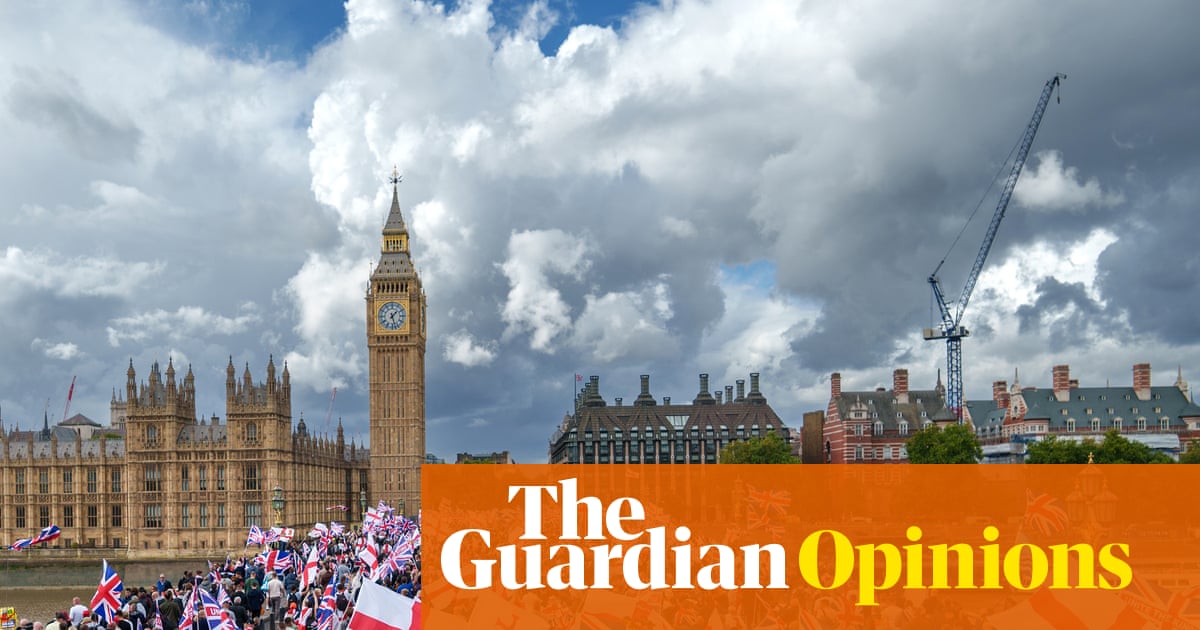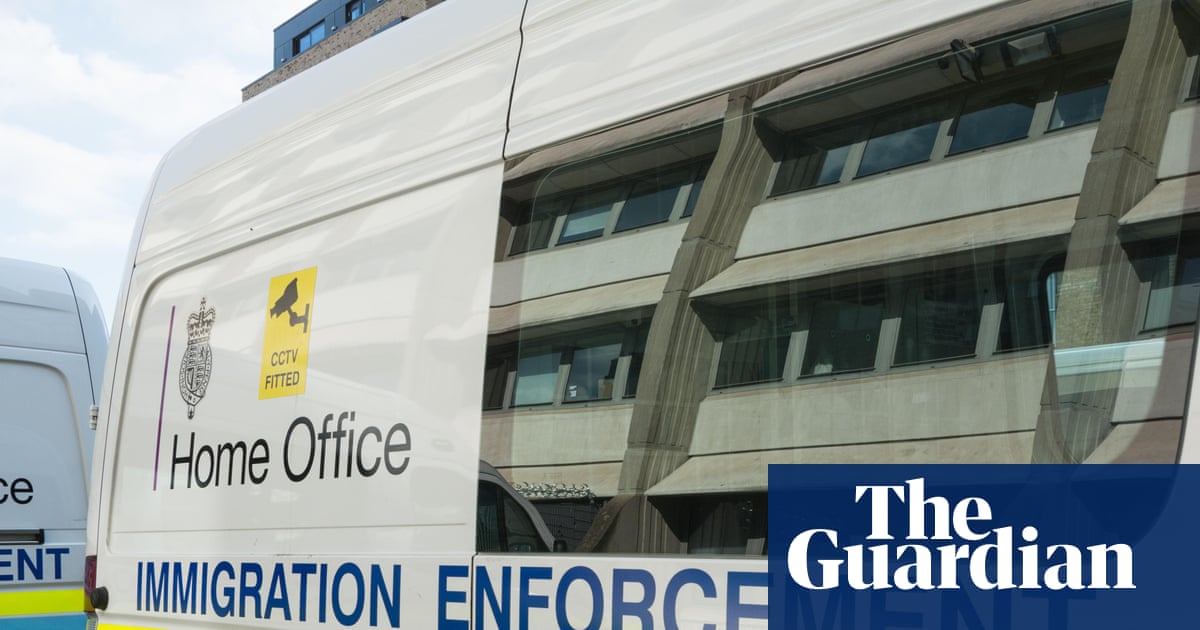Three weeks ago, Keir Starmer said the UK was at risk of becoming an “island of strangers”. But for countless British citizens across the country, that isolation is already a lived reality by design of immigration rules that force them to choose between their homeland and family.
The minimum income requirement dictates how much a person needs to earn in order to bring their non-British partner here. Set at £18,600 for a decade, the Conservatives announced plans to raise it dramatically to £38,700 before backtracking after a public backlash, instead moving it in three gradual stages starting with £29,000 in April last year.
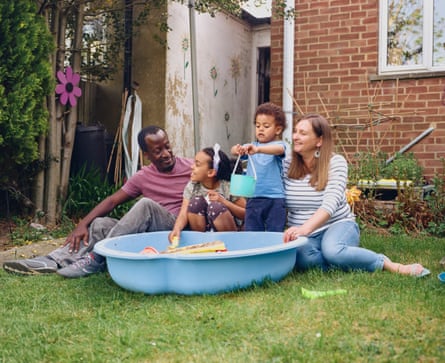
-
David Kitenda (left) with his children Naomi and Daniel and wife Rebecca. Kitenda says the income threshold has made him feel unwelcome: ‘It feels like another way of stopping people of certain other backgrounds.’
The threshold of £29,000 was temporarily frozen by Labour upon taking office. The government has asked the migration advisory committee to review the policy and its findings are expected imminently.
What the government does, or does not do, with the results has the potential to drastically transform family life for those separated by the threshold. It could reunite children with missing parents, end enforced single parenthood, enable couples to begin families and end years of living in limbo.
Camille Auclair and Moisés Álvarez Jiménez met in Mexico in 2017 and two years later they were married. The couple temporarily settled in Mexico in the knowledge they would eventually move to the UK.
But in 2019, Auclair became severely unwell after undiagnosed pelvic actinomycosis devastated her immune system, leading to two hospitalisations within six months.
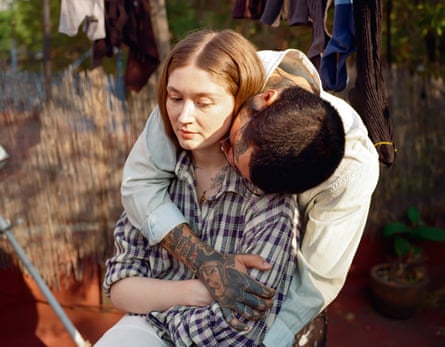
-
Camille Auclair and Moisés Álvarez Jiménez at their home in Mexico.
But another shock came the following year when she was diagnosed with premature ovarian insufficiency, meaning her chance to start a family could be ending fast at just 28 years old. Her condition triggered a pressing need to return home – not only to be closer to family, but with the added urgency of wanting to start her own.
“I was faced with a timeline. I was essentially told, if you ever want to have children, you’re probably going to have to have it facilitated with fertility care,” she said.
She spoke to an NHS doctor who said someone with her condition would be eligible for fertility treatment but that she would have to use an anonymous sperm donor, as her Mexican husband was ineligible for NHS treatment until he gained residency.
For an emerging artist living in Mexico, reaching the £18,600 threshold was already a challenge, only exacerbated by her health. But nonetheless, Auclair was on track to make it – until the bar was abruptly raised to £29,000 in 2023. The couple’s chance of having children in the UK ended in an instant. By the time she would be earning enough, conception would be too difficult.
“Can you imagine someone saying to me in 20 years’ time: ‘You never had children – why?’ And I say: ‘Well, because I didn’t make enough money for the UK government to approve my husband coming to my country with me,’” said Auclair.
“I want the option of having a child in my country, but I don’t want it to be with a stranger. Yes, I could move to the UK alone, quit my career and try to find a job that pays enough, but at what cost? It’s my whole life we’re talking about, everything I’ve worked for.”
The couple say the threshold is yet another example of how UK policy discriminates based on race and class. Acknowledging that has been painful, for Jiménez in particular.
“It’s honestly demoralising and dehumanising. It makes me feel terrible. It has even made me resent the place I come from. And that’s a terrible, terrible feeling,” he said. “For us to come to Mexico, it was so easy. My country was so welcoming to her.”
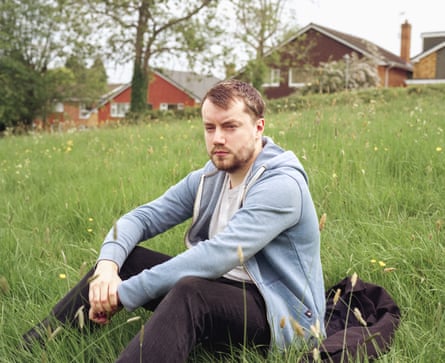
-
Leighton Allen, 29, is not earning enough to bring his two sons and wife over from Tanzania. Instead, he sees them once or twice a year and is watching them grow up through his phone. Last time he visited, his son did not recognise him. ‘I’m the person in the phone,’ he said. ‘It hit me quite hard.’
Rights groups campaigning to end the threshold, such as Reunite Families UK and Cram, say one of the most troubling things about the policy is how it discriminates against women, people of colour, and working-class families. They say that falling in love and starting a family with someone is a spontaneous experience, one that people seldom have control over – but the Home Office policy effectively demands it to be otherwise.
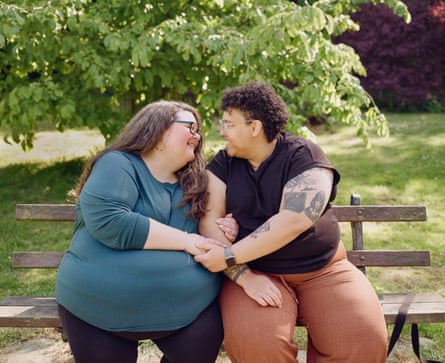
-
Gemma and Lizzie managed to meet the threshold before it increased to £29,000, but application and renewal costs have totalled £12,230 so far. The uncertainty and renewal fees have halted their dream of fostering a child in the UK.
Another troubling aspect is that many assume that bringing their partner to the UK is an intrinsic right, and do not realise the threshold exists until after they have committed to someone and started their family. One of those is Lisa Young*, 31, who was five months pregnant when she found out about the threshold and eight months pregnant when it was increased to £29,000.
With her due date around the corner, she realised she would have to make a choice – raise her child alone in the UK and rely on state benefits, or stay in Japan with her husband.
Her husband watched as she was forced into an unbearable choice. “He said you can stay here,” Young said. “And I said, but I can’t. I can’t do this without you. I don’t want to do this without you.”
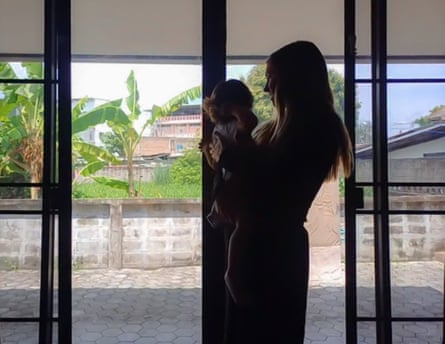
-
Lisa Young* photographed with her young daughter.
Young was forced into exile, leaving her to face motherhood alone in a remote Japanese town built to house the families of factory employees, where her husband worked shifts. The isolation has taken a serious toll on her mental health. “But at least Japan took me with open arms,” she said. Her spouse visa there cost £20, compared with the UK’s £4,525 for applications made outside the country.
She has been reaching out to online support groups of other British citizens who do not earn enough to bring their partners to the UK, with their separation made more painful by the fact that their partners’ income does not initially count towards the threshold. The overwhelming majority, she says, are women, and their main reason for not being able to meet the threshold is because they have children.
“Sometimes I feel like I don’t even want to live in the UK because they are so anti-family, they are so sexist, they’re so racist, and so misogynistic at a policy level. But obviously I want things to change. I want to have the right for me and my family to return home.
“If Labour really were the party for working people, ordinary working people, then they wouldn’t keep a policy that discriminates based on economic class.”
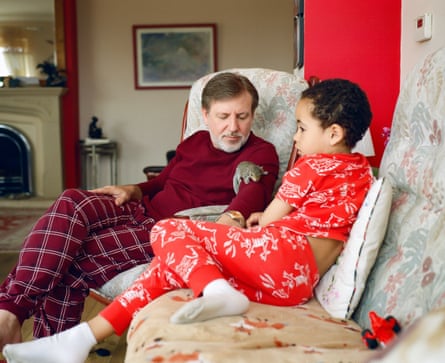
-
David and Macsen Lewis photographed at their home in Newport in early May after two and a half years of separation from Lucy, Macsen’s mother. Just a week ago, Lucy was able to join her family in the UK for the first time.
But it is not just women who feel the brunt of this policy, it is also children and fathers. When David Lewis’s elderly mother’s declining health forced him to return to the UK, he found himself navigating single parenthood, bringing his four-year-old son Macsen with him and leaving his wife, Lucy, behind in Kenya.
As a carer, Lewis had been assured he would be exempt from the income requirement and could sponsor his wife’s visa to join them. He expected the reunion to take three or four months at most. Instead, it stretched to 28 months – nearly two and a half years – after the Home Office informed him that carers must provide care for two years before qualifying to bring their partners to the UK.
Lucy has finally joined her husband and son, but the couple believe the prolonged separation has had a lasting impact on Macsen. Initially angry and guarded after his mother’s absence, he has become withdrawn and emotionally distant.
“The mother is the most important thing in the life of all developing young people, and that was something he didn’t have,” said Lewis. “Everything changed about him.”

-
From left: nine-year-old Tariq, Jessica, six-year-old Layla and Sanas photographed at their home in Newcastle.
The right to family life in the UK is protected under article 8 of the European convention on human rights, which means those who do not qualify to bring their partners here can apply for exceptional circumstances, though such requests are commonly rejected even in cases where people meet the criteria – as happened to Jessica and Sanas.
Sanas, from Sri Lanka, was only able to join his family after he and Jessica went public about their separation and overturned the Home Office’s initial rejection. At that time, the UK government had issued a travel warning for Britons visiting Sri Lanka as it endured economic collapse, with severe shortages of necessities such as fuel, food and medicine.
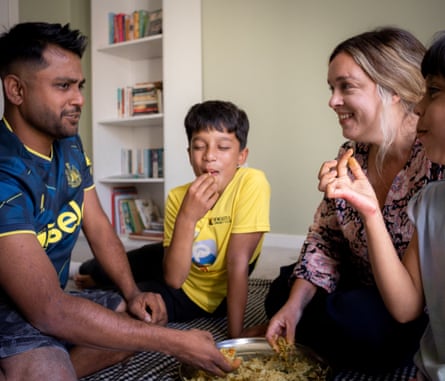
Jessica and Sanas spent 11 months apart and say the separation had a lasting impact on their 10-year-old son, Tariq, as well as the entire family’s sense of stability.
“He lives with a feeling that his father could be taken away from him,” Jessica said. “We can’t ever really relax. We’re always waiting for the next [policy] change.”
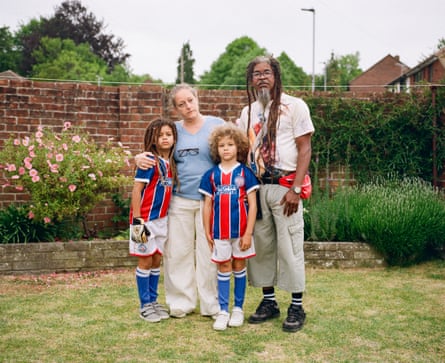
-
After surviving a violent carjacking in Brazil, Raquel moved back to her home town in Havant, Hampshire, with her two sons for safety. But despite earning £23,000, high childcare costs and visa fees mean her husband, Manoel, remains separated from the family apart from temporary tourist visits that are only affordable because of the modelling careers of their two sons, Jaime and Emanoel.
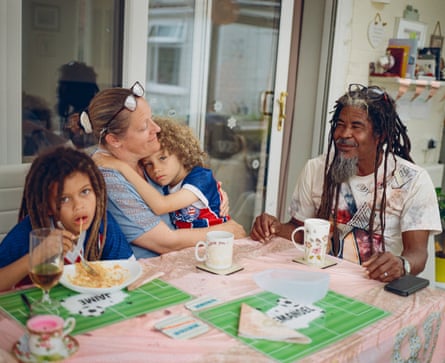
-
‘Black clouds hang above us all,’ said Raquel. ‘The storm abates but never fully passes.’
The review comes as Labour faces pressure to appease the right, compromising the values the party once campaigned for.
In its 2017 manifesto, Labour vowed to abolish the threshold and proposed replacing it with a requirement that families demonstrate they can live without recourse to public funds. And yet, in its recent immigration white paper, the government announced plans to crack down on legal migration routes, with families a target area despite previous pledges.
From his home in Newport, Lewis said he felt like he and countless others were being scapegoated and legal migration had become a bargaining chip.
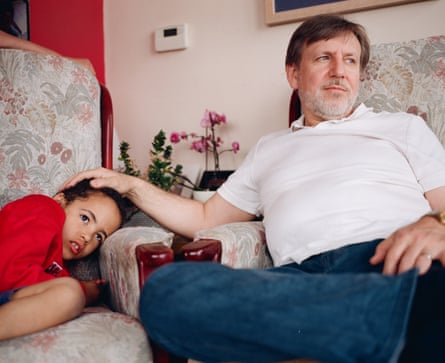
“There is so much good that comes from legal migration and they are demonising it because they have to be seen to be doing something.”
Now that Lucy is here, she cannot qualify for benefits, and yet Lewis believes there is a widespread assumption that it costs taxpayers for her to be here. “If something happened and she had no income and no way of supporting herself, she would be on her own.”
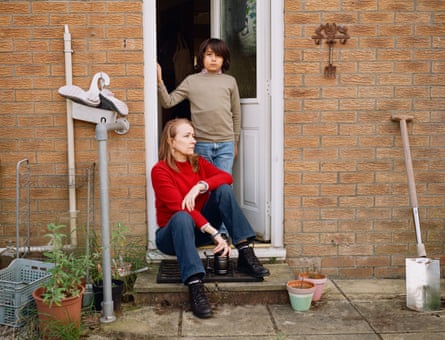
-
Roksana Aung and her son Alexander, eight, photographed at their home in Cardiff. ‘But because I am British, my son has no father and I have no husband,’ said Roksana.
Roksana Aung is a single mother who has lived alone on a remote Cardiff estate since 2017 with her eight-year-old son, Alexander. Aung cannot work because of her chronic illness, fibromyalgia and post-traumatic stress disorder, and receives benefits and care support.
Her husband, Nay Lin Aung, is an undocumented migrant from Myanmar. The pair met when working together in Thailand; he was the captain of a scuba boat, and she dealt with the tourists. After Aung’s Thai visa ran out, the three of them tried living in Myanmar but the fighting became too intense – prompting Aung to return to the UK and Nay Lin Aung to flee to Malaysia.
Despite meeting the criteria for exceptional circumstances, there are no viable pathways in the UK immigration system to accommodate undocumented migrants such as Nay Lin Aung through spousal visas. The rules say he must make an application from his country of origin, which is now in a state of civil war.
If Nay Lin Aung were able to join his family, it would mean Aung would no longer have to claim benefits or need care support. “But because I am British, my son has no father and I have no husband,” she said.
When asked what she would like to see happen, Aung said “he could ask for a visa, board the plane, and come here”, and then sighed. “Wouldn’t that be nice.”
*Lisa Young declined to give her real name.
*Jessica and Sanas declined to give their surname.

 3 months ago
78
3 months ago
78

